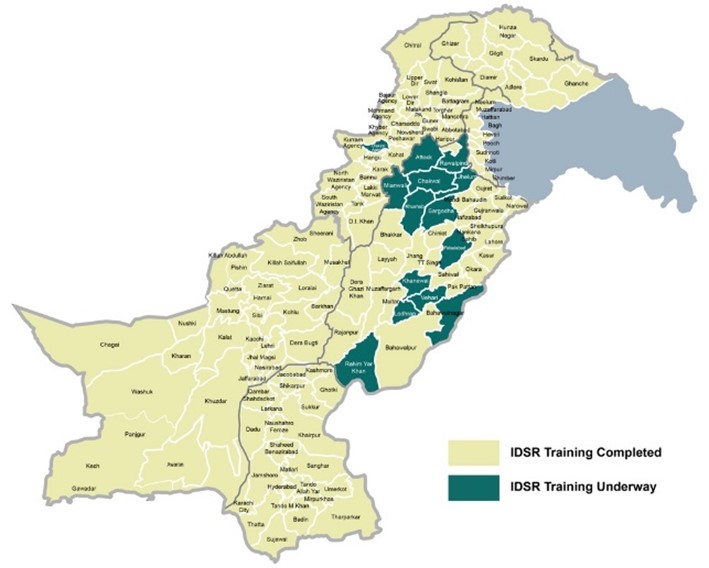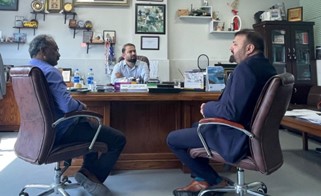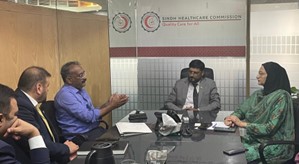
The IHR Strengthening Project (IHR-SP) in Pakistan works in close partnership with the National Institute Health (NIH), National Ministry of Health, provincial health departments and other partners to support IHR implementation with focus on Integrated Disease Surveillance and Response (IDSR) system. As of October 2024, IDSR is implemented in all districts across Pakistan strengthening the national, provincial and district disease surveillance units to prevent, detect and respond to priority infectious diseases.

Sindh is the second-largest province by population (approx.55.6 million) with a total of 30 districts and over 1800 healthcare facilities. Since March 2023, a network for disease surveillance reporting of suspected cases, analysis and response at provincial and district level has been fully implemented, marking the completion of phase 1 of IDSR roll-out. Sindh is the first province in Pakistan to complete the phase 1 implementation. This achievement is a testament of continued collaboration of the IHR-SP with the Sindh government and the government's commitment to enhance disease surveillance for improved public health outcomes.
Image right: IDSR implementation status in districts of Pakistan
Taking steps towards an IDSR lab network
In October 2024, the IHR-SP Pakistan Country Lead, Dr Muhammad Sartaj visited government partners in Karachi to promote IDSR implementation to next phase. This involves integrating confirmed case disease reporting in the IDSR system with the establishment of IDSR labs networks at provincial and national level, as outlined in the national IDSR roadmap. During the visit, Dr Sartaj engaged in a number of project activities and held meetings with the provincial key stakeholders to help achieve this.

One of the project activities was a two-day capacity building training on laboratory diagnosis of mpox to strengthen provincial preparedness and response capacity. The training brought together the lab staff from the provincial and district level and served as a platform to appraise the participants about the initiation of provincial IDSR lab network in the province.
Dr Sartaj along with the in-country Surveillance & IT Lead and Microbiologist also met with the Director of Public Health Reference Labs, Sindh and the Provincial IDSR Lead and discussed the phased approach for establishing the provincial IDSR lab network. They agreed to support the finalisation of the terms of reference for the network, followed by its formal notification to all districts from the Department of Health Sindh.
Image above: IHR-SP Country Lead meeting with Director PHRL & IDSR Lead, Sindh
Engaging with wider stakeholders
The visiting team also met with the Director of the Sindh Health Care Commission (HCC) (image below left) . HCC is an autonomous government organisation and serves to improve the quality of healthcare services in public and private sector. Both parties recognised the need for bridging the data from private sector hospitals into the IDSR system. This data constitutes over 50% of the Tertiary Healthcare facilities in Pakistan but currently does not feed into the IDSR system. The IHR-SP Country Lead appreciated the HCC vision to build on the existing national system and extended support for piloting the integration of data of priority infectious diseases into the IDSR system from private sector hospitals in Sindh.

The IHR SP team also held a meeting with other partners including Pathfinder, an international organisation based in Sindh province currently working on IHR coordination strengthening and disease surveillance at national and subnational level. The discussions converged towards working collaboratively and aligning IDSR work in provinces contributing to the national system strengthening, under the leadership of the NIH and National Ministry of Health.
IHR SP team acknowledged the partners for facilitating their visit and reiterated their support in developing IDSR further in Sindh with their cooperation. including Department of Health Sindh, British Deputy High Commission Karachi, Contech International and other partners.